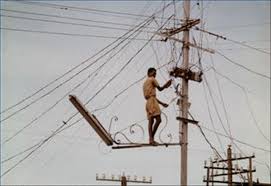The government has submitted a proposal to the National Power Regulatory Authority (Nepra) for amendments to the Consumer Service Manual (CSM) in a bid to empower distribution companies (Discos) with the authority to confiscate electrical appliances and impose detection bills on consumers and premises found involved in power theft.
Nepra will consult with stakeholders regarding the amendments to the CSM within the next 10 days and the amended manual is expected to be officially notified and implemented within one month.
The government has tasked the regulator with making adjustments to the CSM to address multiple connections and separate electricity meters in residential premises that lack direct and separate entrances from the main roads.
Initially, consumers will be given the option to voluntarily apply for a single Time-of-Use (TOU) meter for houses with a single entry. Subsequently, compulsory removal of multiple meters, along with associated costs, will be enforced.
Under the proposed CSM, Discos will review all premises larger than 10 marlas or equivalent, where multiple connections are present. Consumers with more than one non-TOU meter will receive a 15-day notice to apply for load consolidation, converting all non-TOU meters into TOU meters. Failure to comply will result in a disconnection of supply.
Following the expiration of the 15-day notice, the assistant manager (operations) of Discos will conduct a field survey to confirm whether consumers have applied for load consolidation or submitted the required documents. If consumers fail to do so, Discos will proceed with the disconnection of multiple non-TOU meters.
The decision defines instances of illegal electricity use and theft, which include unauthorized power connections, direct connections to Discos’ supply or distribution lines without proper metering, meter tampering, and the presence of unauthorized devices in buildings or premises. Offering money or other considerations to Discos’ officials for electricity-related reasons is also categorized as electricity theft.
In these cases, Discos will treat the offense as electricity theft and report it to the police in accordance with relevant legal provisions.
This will be followed by the disconnection of electricity. Any confiscated material will serve as evidence of theft, and it will be retained for use in legal proceedings.
If the same premises or consumer is found involved in theft or illegal supply again, Discos will not only take legal action but also remove electrical equipment and appliances used for consuming stolen electricity. Law enforcement agencies will issue a search warrant, and in the presence of the concerned Disco representative, they will enter and remove the relevant equipment.
To recover their losses, Discos will issue detection bills to unregistered and registered consumers equivalent to 12 months and six months respectively. In second instance, the unregistered and registered consumers would be charged detection bills equivalent to 36 months and 18 months respectively.
For the third such instance, the unregistered and registered consumers would be charged detection bills equivalent to 60 months and 30 months respectively.




